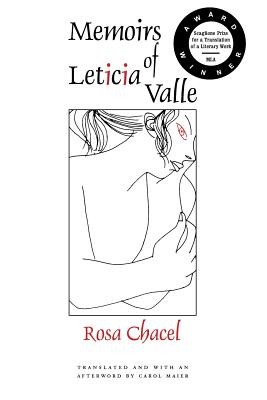
- We will send in 10–14 business days.
- Author: Rosa Chacel
- Publisher: University of Nebraska Press
- ISBN-10: 0803263600
- ISBN-13: 9780803263604
- Format: 14 x 22.8 x 1.4 cm, softcover
- Language: English
- SAVE -10% with code: EXTRA
Reviews
Description
Memorias de Leticia Valle (1945) is the fictionalized diary of an eleven-year-old girl who records an "inconceivable" seduction. Set in early twentieth-century Spain, the events she chronicles take place in the village of Simancas, site of a castle that houses a famous archive. Leticia, the archivist, and his wife-Leticia's piano teacher-are the actors in this drama, which is rehearsed in a purely introspective way. The seduction resembles that of a thirteen-year-old girl in Dostoyevsky's The Possessed, but it does not result in Leticia's mental or physical destruction. Rather, it acts as the catalyst for a deep questioning and exploration of life. Rosa Chacel was born in Vallodolid, Spain, in 1898. She belongs to that brilliant generation of artists that became the cultural vanguard in the 1920s and 1930s: GarcÃa Lorca, Buñuel, DalÃ, Alberti, Guillén, Aleixandre. As a result of the fascists' victory in the late thirties, the work of Chacel and other women writers were erased from the cultural memory until recently. In the interim Chacel was exiled in Brazil and Argentina. Currently she lives in Madrid and writes every day. Carol Maier is a professor of Spanish at Kent State University and editor, with Noël Valis, of In the Feminine Mode. Her other translations include work by Carmen MartÃn Gaite, Ana Castillo, Octavio Armand, and Severo Sarduy.
EXTRA 10 % discount with code: EXTRA
The promotion ends in 7d.21:49:46
The discount code is valid when purchasing from 10 €. Discounts do not stack.
- Author: Rosa Chacel
- Publisher: University of Nebraska Press
- ISBN-10: 0803263600
- ISBN-13: 9780803263604
- Format: 14 x 22.8 x 1.4 cm, softcover
- Language: English English
Memorias de Leticia Valle (1945) is the fictionalized diary of an eleven-year-old girl who records an "inconceivable" seduction. Set in early twentieth-century Spain, the events she chronicles take place in the village of Simancas, site of a castle that houses a famous archive. Leticia, the archivist, and his wife-Leticia's piano teacher-are the actors in this drama, which is rehearsed in a purely introspective way. The seduction resembles that of a thirteen-year-old girl in Dostoyevsky's The Possessed, but it does not result in Leticia's mental or physical destruction. Rather, it acts as the catalyst for a deep questioning and exploration of life. Rosa Chacel was born in Vallodolid, Spain, in 1898. She belongs to that brilliant generation of artists that became the cultural vanguard in the 1920s and 1930s: GarcÃa Lorca, Buñuel, DalÃ, Alberti, Guillén, Aleixandre. As a result of the fascists' victory in the late thirties, the work of Chacel and other women writers were erased from the cultural memory until recently. In the interim Chacel was exiled in Brazil and Argentina. Currently she lives in Madrid and writes every day. Carol Maier is a professor of Spanish at Kent State University and editor, with Noël Valis, of In the Feminine Mode. Her other translations include work by Carmen MartÃn Gaite, Ana Castillo, Octavio Armand, and Severo Sarduy.


Reviews